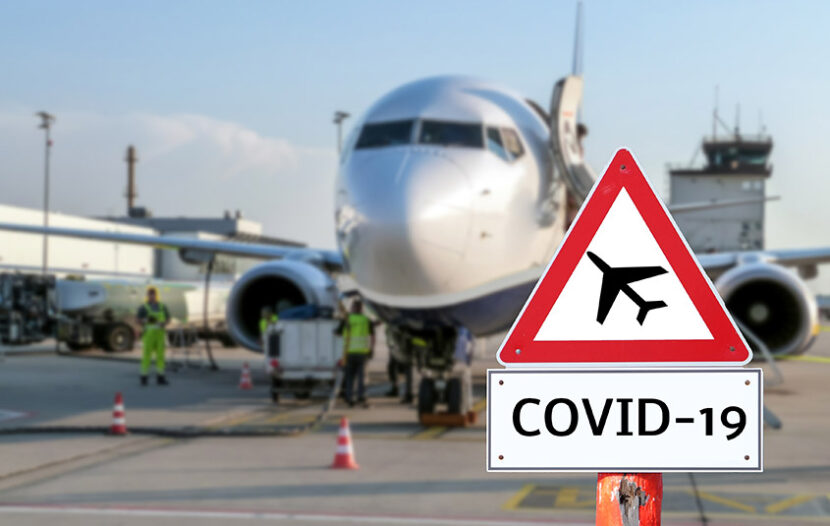GENEVA — The latest stats from IATA show that the airline industry is expected to remain cash negative throughout 2021, with an estimated cash burn now pegged at US$75 – $95 billion for the year, up sharply from the previous $48 billion estimate.
Airlines will only turn the corner in 2022, and that’s only with government aid, said Alexandre de Juniac, IATA’s Director General and CEO.
“If governments are unable to open their borders, we will need them to open their wallets with financial relief to keep airlines viable,” said de Juniac.
He adds: “With governments having tightening border restrictions, 2021 is shaping up to be a much tougher year than previously expected. Our best-case scenario sees airlines burning through $75 billion in cash this year. And it could be as bad as $95 billion. More emergency relief from governments will be needed. A functioning airline industry can eventually energize the economic recovery from COVID-19. But that won’t happen if there are massive failures before the crisis ends.”
In Canada, discussions between the airlines and the federal government to finalize the financial assistance package, first announced back in November 2020, are reportedly now in the home stretch.
Airlines have seen a weaker than expected start to 2021 after governments tightened travel restrictions in response to new COVID-19 variants. Forward bookings for summer (July-August) are currently 78% below levels in February 2019 (comparisons to 2020 are distorted owing to COVID-19 impacts).
IATA’s optimistic scenario would see travel restrictions gradually lifted once the vulnerable populations in developed economies have been vaccinated, but only in time to facilitate tepid demand over the peak summer travel season in the northern hemisphere.
In its pessimistic scenario, airlines will burn through $95 billion over the year. The driver of this scenario would be governments retaining significant travel restrictions through the peak northern summer travel season. In this case, 2021 demand would only be 33% of 2019 levels.
De Juniac has laid out 3 initiatives that IATA sees as critical for the industry’s survival:
PLANNING
Preparing the industry to safely restart after a year or more of disruption will take careful planning and months of preparation, he notes. Governments can ensure that airlines are prepared to reconnect people and economies by working with industry to develop the benchmarks and plans that would enable an orderly and timely restart.
“The UK has set a good example. Earlier this week it laid out a structure for re-opening based on an improvement in the COVID-19 situation. This gives airlines a framework to plan the restart, even if it needs to be adjusted along the way. Other governments should take note as a best practice for working with industry,” said de Juniac.
HEALTH CREDENTIALS
It is becoming clear that vaccines and testing will play a role as the pandemic comes under control and economies ramp up, including the travel sector, says de Juniac. The IATA Travel Pass will enable travellers to securely control their health data and share it with relevant authorities. A growing list of airlines—including Air New Zealand, Copa Airlines, Etihad Airways, Emirates, Qatar Airways, Malaysia Airlines, RwandAir, and Singapore Airlines—have done or are committed to doing trials with IATA Travel Pass.
As reported yesterday, IATA’s Regional Director of Airports and External Relations, Vinoop Goel, has indicated that the IATA Travel Pass will be ready within weeks. “The plan is to go live in March,” said Goel.
“Efficient digital management of health credentials is vital to restart. Manual processes will not be able to cope with volumes once the recovery begins. Digital solutions must be secure, work with existing systems, align with global standards and respect data privacy. In developing the IATA Travel Pass these are fully in focus. The IATA Travel App will help to set the bar very high for managing health credentials, protecting against fraud and enabling a convenient travel process. While there is choice in the market for solutions, there should be no compromise on the fundamentals, or we risk failing systems, disappointed governments and travellers, and a delayed restart,” said de Juniac.
GLOBAL STANDARDS
As vaccination programs and testing capacity expand, two developments have become critical – global standards to record tests and vaccines; and a plan to retrospectively record those who have already been vaccinated, he notes.
“Speed is critical. Fraudulent COVID-19 test results are already proving to be an issue. And as vaccine programs ramp up governments are using paper processes and differing digital standards to record who has been vaccinated. These are not the conditions needed to support a successful restart at scale when governments open borders. The WHO, ICAO, and OECD are working on standards, but each day without them means the challenge gets bigger. We need an early conclusion by competent authorities that the industry can plan around,” said de Juniac.
“Even as governments focus on managing the COVID-19 crisis, we must be thinking a step ahead to the plans, tools and standards needed to restart flying and energize the economic recovery from COVID-19,” said de Juniac, adding that for airlines, “it’s the time to ask governments for their restart plan and to offer any support from industry that could help.”

